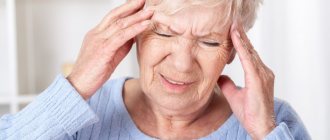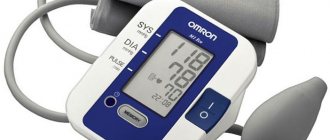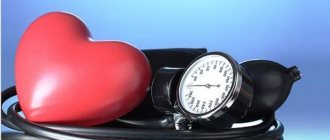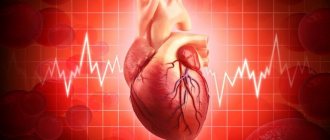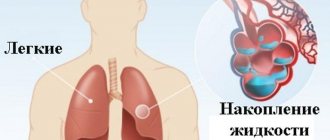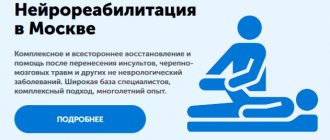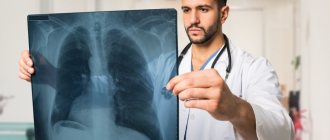Dizziness is one of the most common disorders in the practice of both neurologists and other clinicians. According to statistics, every tenth outpatient patient complains of dizziness, and among those who consult a neurologist or otolaryngologist, the proportion of patients with this complaint reaches 25% [4, 9, 14].
Complaints of dizziness are common among all age categories of patients, including the elderly. At the same time, dizziness in the elderly may have a number of clinical features that must be taken into account in practice. This is due to the high prevalence of degenerative diseases, including the inner ear, in old age and the high incidence of vascular diseases of the brain, the manifestation of which can be dizziness. In addition, cognitive impairment and emotional disturbances are very common in elderly patients, which can significantly modify both subjective perception and objective signs of dizziness [2, 6, 13, 24].
Signs of dizziness
Dizziness in old age has its own characteristics. To notice an approaching attack, you need to know the signs indicating vertigo (dizziness):
- Unexpected vomiting.
- Unsteady gait.
- Weakness, difficulty breathing.
- A strong desire to lie down or sit down.
- Sweat on forehead.
The cause of this condition may be pathologies such as:
- Migraine.
- Vegetovascular dystonia.
- Some viral and infectious diseases.
- Thyroid gland dysfunction.
- Hypertension.
- Osteochondrosis of the cervical spine.
- Diabetes.
The effectiveness of treating dizziness in older people depends on the cause and how quickly the diagnosis is made.
Semiotics of systemic and non-systemic vertigo
You should always remember that when complaining of “dizziness,” different patients understand this word as completely different subjective sensations. Therefore, each time it is necessary to clarify what exactly is bothering the patient. It is necessary to invite the patient to describe his feelings in ordinary words - without using any special medical terms or figurative comparisons. This is not always easy, and the greatest difficulties are experienced by patients with a low level of education, cognitive disorders, especially elderly patients. However, one should not be content with the patient’s explanation as “he’s spinning and that’s it,” or the like. An attempt to understand the patient’s subjective sensations is the first and very important step in diagnosing the type, topical diagnosis and, ultimately, establishing the cause of dizziness.
In Russian neurology, it is customary to distinguish between systemic and non-systemic dizziness. The first always reflects dysfunction of the vestibular analyzer or disruption of its connections with the visual system or cerebellum. Patients describe vestibular (systemic) vertigo as the illusion of objects rotating in front of the eyes or the illusion of the body rotating around its axis (rotational vertigo, vertigo), or as a feeling of “sinking” or “flying.” Systemic dizziness is always extremely unpleasant, usually accompanied by a strong vegetative reaction (change in skin color, tachycardia or bradycardia), nausea, and vomiting. Very often, systemic dizziness, especially when occurring for the first time, is also accompanied by severe reactive anxiety. An objective indicator of the systemic nature of dizziness is nystagmus, which is always detected in the patient during dizziness, and often persists after it [5, 11, 14, 16].
In contrast to systemic, non-systemic dizziness is a very heterogeneous group of subjective sensations in pathophysiology and etiology.
The most common types of non-systemic dizziness include the following [3, 14–16]: • feeling of impending fainting: general weakness, lightheadedness, darkening in the eyes, “spots” before the eyes, etc. As a rule, it occurs only in a standing position, less often when sitting, passes or decreases when taking a horizontal position; • a feeling of instability, staggering when walking, objective difficulties in maintaining balance or fear of losing balance and falling. These complaints also occur only in an upright position; • difficulty concentrating, lack of concentration, “fog in the head,” feeling slightly intoxicated.
As can be seen from the above, the word “dizziness” refers to very different phenomena, which is acceptable from the standpoint of the rules of the Russian language, but should not mislead clinicians. For the clinician, “true” dizziness is one that meets the criteria for systemic dizziness.
Additional signs of dizziness
If dizziness is episodic, then this should not be a cause for concern. However, in case of periodic attacks or the manifestation of certain pathological conditions, it is recommended to undergo a medical examination and, if necessary, treatment.
Signs indicating urgent treatment for vertigo:
- Sudden weakness.
- Lack of appetite for more than a day.
- Blurry image before the eyes.
- Noise and buzzing in the ears.
- Low (below 55 beats/min.) or high (over 100 beats/min.) pulse.
- Coldness in lower and upper extremities.
- Unclear speech.
- Blood pressure surges.
The appearance of at least one of these signs indicates the presence of a serious problem and is a reason to see a competent specialist. After the examination, the doctor will prescribe a course of treatment and other measures to promote a speedy recovery.
Carbohydrates
The carbohydrate content in the diet should be on average 340 and 310 g for elderly men and women, respectively. As sources of carbohydrates, foods rich in starch and dietary fiber (fiber, pectin, etc.) are preferred: wholemeal and bran bread, whole grain cereals , vegetables, fruits, berries.
Dietary fiber is necessary to stimulate the motor function of the gastrointestinal tract and bile secretion, since constipation and congestion in the gallbladder are common in older people. Dietary fiber helps remove cholesterol from the body.
The diet is limited to easily digestible carbohydrates, primarily sugar, confectionery, and sweet drinks. Their content should not exceed 15% of all carbohydrates (up to 15 g per serving), and if you are prone to obesity - 10%. This is due to an age-related decrease in tolerance to carbohydrates, in particular due to changes in the insular apparatus of the pancreas, increased formation of fat and cholesterol due to easily digestible carbohydrates, and their adverse effect on the functions of the cardiovascular system of older people. Lactose and fructose should predominate among easily digestible carbohydrates (dairy products, fruits, berries).
Intense dizziness
Vertigo can vary in intensity. In addition to changes in health status, sudden intense dizziness can be caused by several external factors. In this case, therapy is not required - you just need to change your habits and lifestyle.
Factors that provoke dizziness in old age:
- Strong physical activity. Often older people are interested in gardening and growing vegetables. Most often this happens during hot periods, which causes weakness, fatigue and, as a result, intense dizziness.
- Insufficient rest.
- Sudden rise from a chair, bed, etc.
- Traveling in vehicles at high speed (sickness).
Also, one of the causes of vertigo in women is menopause. The reason lies in certain hormonal changes that occur at this time.
According to world statistics, patients with complaints of dizziness account for up to 18% of the total number of patients of otolaryngologists, up to 27% of neurologists and up to 10% of general practitioners. The problem is widespread, relevant, requiring careful diagnosis and adequate treatment. We talked with the leading researcher of the neurological department of the Republican Scientific and Practical Center of Neurology and Neurosurgery, Candidate of Medical Sciences. Sciences Irina Maryenko about where chronic dizziness comes from, the dangers of late diagnosis, and what does antidepressants have to do with it.
Irina Maryenko, leading researcher of the neurological department of the Republican Scientific and Practical Center of Neurology and Neurosurgery, Candidate of Medical Sciences. science. Irina Pavlovna, the disease has several formulations - phobic, subjective, psychogenic chronic dizziness. Help me to understand…
It's all one disease, it's just that its name has changed over time. In the 1980s, it was called phobic, from the word “phobia” (fear), that is, dizziness provoked by fear. There was also the term “psychogenic,” but patients did not like the addition of “psycho.” In 2005, the wording was revised, chronic dizziness began to be called “subjective”. The latest classification is persistent (constant) postural perceptual dizziness (PPD).
Today in Belarus this pathology belongs to the F45 ICD-10 heading - somatoform disorders. PPPG as a separate disease should appear in ICD-11 in 2022.
How to distinguish PPPG from dizziness accompanying some other disease?
The patient complains of constant dizziness, instability, and unsteadiness, but there are no objective manifestations of this condition. They cannot be identified either by clinical examination, or by neurophysiological examination, or by MRI.
Does the disease depend on age?
Dizziness often develops in older people. But here they can be caused by visual or hearing impairments. An elderly person may react inadequately to visual and auditory stimuli with some sudden movements and fall. His hip and knee joints hurt, this pain changes the pattern of walking - he spares himself. In some cases, patients with diabetes mellitus develop distal polyneuropathy with sensory disturbances; this can also lead to non-systemic dizziness and unsteadiness when walking.
PPPG may be diagnosed in patients who are taking inappropriate or overdoses of medications, such as beta blockers or blood pressure medications.
Therefore, collecting anamnesis is very important to identify the causes. These patients take up a lot of time in a doctor's practice. The doctor must clearly understand exactly what sensations the patient puts into the complaint of dizziness.
Among patients with PPPG, people of working age are most often found - from 20 to 50 years. That's why the problem is so urgent. In our practice, we see patients who come to the Republican Scientific and Practical Center for specialized examinations six months after the first symptoms appear, and by this time many of them have already left work because they cannot move around the city without assistance. These are people who quickly become dependent on circumstances - on the accompaniment of loved ones, working conditions, lighting, etc. The social activity of this category of patients is significantly limited.
What is the typical patient journey from the first symptoms to the correct diagnosis? How long does it take? And why is delay dangerous?
This journey usually takes about six months. Procrastination is dangerous because a person develops avoidant behavior, that is, he begins to avoid situations in which his sensations intensify: he does not go outside without help, does not take the subway, does not go to the store.
In addition, a delay in establishing a diagnosis and prescribing treatment is dangerous because a person becomes convinced that he is sick with some unknown disease. This leads to anxiety and depression. The patient constantly lives in a state of unsatisfactory perception of his balance, gait, and surrounding space. Mood disorders also lead to dizziness. The result is a vicious circle. In this state, people often leave work and become isolated from society.
What are the most common causes of PPPG?
My experience suggests that two groups of patients can be distinguished. The first are those who acquired chronic perceptual vertigo after an attack. An acute attack has an extremely unpleasant set of symptoms: nausea, vomiting, and endless dizziness that does not allow you to lift your head from the pillow. In people prone to arterial hypertension, a vegetative reaction is activated and blood pressure can significantly increase, up to a hypertensive crisis. In the acute period, it is not for nothing that an ambulance is immediately called, since the first suspicion is a stroke.
In such patients, after the attack has stopped, there remains a fear of going to bed, a fear of bending over. For example, a patient may not sleep on his right side for six months or no longer hang out his laundry - he is so afraid of a recurrence of the attack. When tested, no symptoms are detected, but the memory remains. It is memory and fear of a possible attack of dizziness that triggers the development of PPPG.
The second group of patients are people with increased anxiety, possibly in a state of depression. Against this background, any somatoform disorder of the autonomic nervous system can affect higher autonomic functions and trigger the feeling of constant dizziness.
You said that people often confuse the condition with a stroke and call an ambulance... In what cases is it necessary to take emergency measures for dizziness?
Emergency measures are needed not for chronic dizziness, but for an acute attack. Situations when dizziness is accompanied by some other symptoms are dangerous. If the patient complains of speech impairment, swallowing, double vision, weakness in the arm or leg, an acute cerebrovascular accident can be suspected. Dizziness due to a pressure of 100 over 60 or rhythm disturbances is a cardiac pathology that requires emergency intervention. Dizziness due to otitis media and a temperature of 40 degrees may indicate a brain abscess, for example, the cerebellum.
Who treats patients with PPPG?
Neurologists and otorhinolaryngologists deal with the problems of dizziness in our country. But it is mainly general practitioners who refer them to them.
However, many general practitioners, as soon as they hear from a patient that he is dizzy, diagnose vertebral artery syndrome, the initial manifestation of cerebrovascular insufficiency or discirculatory encephalopathy. But this is a mistaken trace that can lead to additional problems for the patient. For example, to the examination procedure for driving vehicles, working at heights, etc.
I urge general practitioners to be sensitive to the problem of chronic dizziness. The Republican Scientific and Practical Center of Neurology and Neurosurgery has organized advanced training courses that cover the issues of clinical and neurophysiological diagnosis of vestibular disorders. There is a large pool of tests that will allow the doctor, during the initial examination, to identify vestibular disorders without special equipment and clearly plan where to refer the patient next. I teach these courses at the training center and I can say that after such training, GPs are able to help patients with PPPG, and not dump them on highly specialized doctors. By the way, the courses take place throughout the year, and you can even get individual training.
How can a general practitioner diagnose PPPG without special equipment?
First of all, you need to collect a detailed history. Find out from the patient the nature of dizziness (systemic or non-systemic), duration, find out what provokes it, how it is relieved, as well as important details - where the patient works, how he helps himself, etc.
The doctor should pay attention to how the patient came to him - gait, behavior, whether he came alone or accompanied.
Next, you can use a classic clinical test from neurology - assessing stability in the Romberg position (feet together, eyes closed, arms forward, fingers spread). Normally, a person stands straight. If stability is impaired, it will significantly deviate in the affected direction. At the same time, the hands go in the opposite direction. It is typical that patients with PPPG try to fall, but always hold on. A patient with organic lesions of the central nervous system will fall, but a patient with PPPG will stand. This is a sign of the psychogenic nature of dizziness.
The patient can also be asked to walk with his eyes open, with his eyes closed, on his toes, or on his heels. Problems performing these tasks may indicate organic disorders.
The physician should pay special attention to the discrepancy between symptoms. For example, the patient came in heels, but does not stand in the Romberg position. Or the patient feels great while working out in the gym, but in the supermarket he begins to have an attack of dizziness. Or everything is fine while driving, but when you go outside you start to feel dizzy. This indicates the psychogenic nature of the disease.
Is external examination enough to make a diagnosis?
In some cases yes. Of course, instrumental methods are also used in diagnosis.
For example, a vestibulometric study with registration of the reaction either on a video-oculograph or on an electronystagmograph. Patients with PPPG never have spontaneous nystagmus, the main sign of damage to the vestibular system. Vestibulometry with functional tests is the most reliable diagnosis of PPPG and allows us to identify other types of vestibular disorders.
I can say that 50% of the problem is solved during this study. The patient sees the result with his own eyes, this removes most of the fears that provoke dizziness. All thoughts that he is sick with some strange disease go away, and this contributes to a quick recovery.
Another effective instrumental diagnostic method is to study the patient’s stability in an upright position on a special stabilization platform. The patient is given various loads - the same Romberg test, head turns, presentation of optokinetic stimulation (imitation of circumstances in which the patient experiences dizziness). At the same time, speed, deflection angles, and the quality of the equilibrium function are measured.
It is difficult to establish the true nature of dizziness only based on the results of stabilography without diagnosing nystagmus, but this is a good additional tool.
Unfortunately, vestibulometric studies are carried out only in two healthcare institutions: at the Republican Scientific and Practical Center of Neurology and Neurosurgery and at the Republican Clinical Medical Center of the Presidential Administration. Stabiloplatforms are available in several institutions. We expect that with the advent of clinical protocols for the diagnosis and treatment of vestibular function disorders, instrumental diagnostics will become more accessible and appear in hospitals and clinics. The cost of the equipment is not that high. In many countries this is an absolutely routine test.
If PPPD is often diagnosed in people with high levels of anxiety and even depression, are antidepressants used in treatment?
Antidepressants are indispensable in the treatment of this disease. A variety of medications are used, but selective serotonin reuptake inhibitors (SSRIs) or selective serotonin norepinephrine reuptake inhibitors (SSRIs) are preferred for the treatment of PPPG. In neurology, such therapeutic effects of antidepressants as a vegetative-stabilizing effect are also used; they also affect central pain syndromes and help fight chronic pain.
In a clinic, a psychotherapist, neurologist, or general practitioner can prescribe antidepressants. But often GPs prescribe either ineffective dosages or very short courses of treatment. After which the patient says: “Antidepressants don’t help, don’t prescribe them anymore.”
This may be why patients demonstrate low compliance to such treatment. And this, in turn, leads to the fact that general practitioners are not very willing to prescribe antidepressants. And in vain. When treating PPPG, these drugs do not cause dependence, lethargy or significant side effects, are well tolerated, and are easy to take (once a day). Antidepressants are drugs with a cumulative effect; they should be prescribed for a period of at least 3 months, usually for 6–12 months. The first results can be noticeable only after a month if taken in an adequate dose.
What are the tactics of drug therapy for PPPG?
If a patient comes to the doctor with an acute attack of dizziness (lying in a forced position, unable to raise his head due to severe dizziness before his eyes, nausea, vomiting), these symptoms must first be stopped. The development of chronic phobic dizziness directly depends on the duration of the acute period.
Further therapy aimed at sedating vestibular excitability should not exceed 3 days. Recommendations in the spirit of: “If you feel dizzy, lie in bed for 10 days and don’t get up” are unacceptable. The patient should return to normal life and continue to do what he can. The sooner you start stimulating the impaired function of the vestibular apparatus, the better the prognosis for recovery.
When a diagnosis of PPPG is made, therapeutic exercises can be much more effective than pills. However, if necessary, drugs that affect metabolism and improve central vestibular compensation should be prescribed. Now the arsenal of neuroprotective drugs is large.”
What is the prognosis for life?
If the disease is detected in time, treated correctly and cooperation with the patient is established, then the prognosis for recovery is favorable.
0–15 points – low level of anxiety
16–30 points – moderate anxiety
31–45 points —severe anxiety
How to help an older person if he has dizziness
To prevent a person from falling during dizziness, you need to do the following:
- Help him walk to the bed and lay him on his back.
- If the older person's limbs are cold, warm them with slow warming movements.
- Apply a cold water compress to your forehead.
- Provide air access by opening the window.
- Give a mug of warm sweet tea to drink.
- If an older person is taking medication for vertigo, they should take it.
In some cases, inhaling ammonia vapor will help relieve dizziness.
Fats
The fat content in the diet should not exceed an average of 75 and 70 g per day for older men and women, respectively. Sources of animal fats, especially refractory ones, in particular meat and fatty sausages, are subject to restrictions. Milk fats, which are easily digestible and contain lecithin and fat-soluble vitamins, can make up up to a third of all dietary fats.
At least a third of the fats should be vegetable oils (20-25 g per day). Preferred are unrefined vegetable oils, which contain more substances important for older people, such as phosphatides, sitosterol, vitamin E, as well as vegetable oils in their natural form (in salads, vinaigrettes, porridges), and not after heat treatment.
Fatty acids from vegetable oils have a positive effect on metabolism, in particular cholesterol, in the aging body. However, excessive consumption of vegetable oils is impractical due to their high energy value and the possibility of accumulation of oxidation products of unsaturated fatty acids in the body. For individual meals, the amount of fat with a high content of saturated fatty acids, including butter, should not exceed 10-15 g. Cholesterol is limited in the diet, but foods that are simultaneously rich in it and anti-atherosclerotic substances (lecithin, vitamins, etc.) are not excluded. for example eggs, liver.
Vitamins
With physiological aging, the metabolism of a number of vitamins changes, but these changes do not indicate an increased need for vitamins. However, some older people experience vitamin deficiency due to poor nutrition or impaired absorption of vitamins. In case of diseases, vitamin deficiency in the body occurs faster in old age than in young age.
We must focus on providing vitamins from natural sources - food. This does not exclude additional fortification, for example, vitamin C in the winter-spring period. Before taking multivitamin preparations, you should consult your doctor, because... Excessive intake of vitamins is harmful to the aging body.
Treatment with folk remedies
Fans of alternative medicine and folk remedies have their own recipes for relieving attacks of dizziness. The following are considered effective in these cases: ginger tea, carrot, beet and pomegranate juices. Drinking small portions of parsley seed tea throughout the day will stop the attack. Tea is brewed at the rate of 1 teaspoon of seeds per glass of boiling water and infused for 6-8 hours. Mint, lemon balm, linden blossom - teas made from these medicinal plants also have a positive effect in the treatment of dizziness.
Attacks of dizziness, as such, do not pose any threat to human life. However, in some cases they can indicate serious illnesses. And therefore, if, along with dizziness, symptoms such as severe headache, loss of sensation in the limbs, incoherent speech, and confusion are observed, you should urgently call an ambulance.
Primary appointment with a neurologist: 1850 RUR.
Sign up Online 5% discount when registering from the site
Diet
The basic principles of the diet of older people are regular meals, the exclusion of long intervals between them, and the exclusion of large meals. This ensures normal digestion and prevents overstrain of all body systems that ensure the absorption of nutrients.
With physiological aging, the functions of the digestive organs are moderately reduced, but adaptive capabilities are significantly limited, so large food loads may be unbearable for them.
The most rational diet is 4 meals a day: 1st breakfast - 25% of the daily energy value of the diet; 2nd breakfast - 15-20%; lunch - 30-35%; dinner - 20-25%.
For diseases of the elderly, a 5-time diet is desirable: 1st breakfast - 25% of the daily energy value of the diet; 2nd breakfast - 15%; lunch - 30%; dinner - 20%; 2nd dinner - 10%.
For healthy older people, there are no prohibited foods, only more or less preferred ones. It is unacceptable to become addicted to any one or a group of food products, since even their high nutritional value cannot compensate for the defects of one-sided nutrition.
First aid
In case of severe attacks of dizziness, the victim must be given first aid. A person should take a horizontal position, take a few drops (8-10) of atropine 0.1% solution. And, of course, do not forget about ensuring the flow of fresh air. In some cases, it may be necessary to relieve nervous tension with sedatives or tranquilizers.
Further assistance should be provided by a doctor. Only a specialist can identify the cause of dizziness and prescribe effective treatment. It is quite possible that to find out a more complete picture of the disease and an accurate diagnosis, you will need to consult different doctors: a therapist, a neurologist, an endocrinologist, an otolaryngologist.

